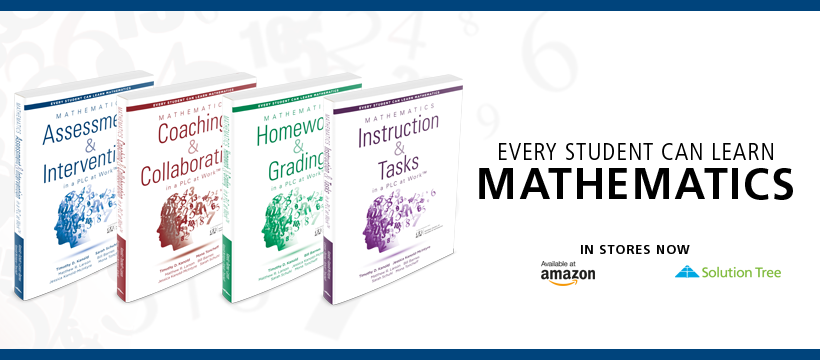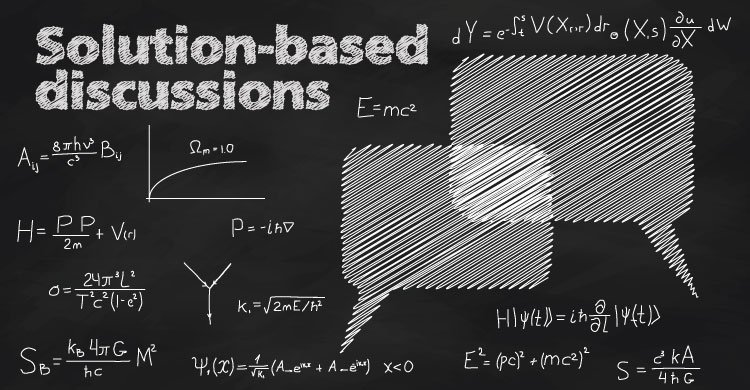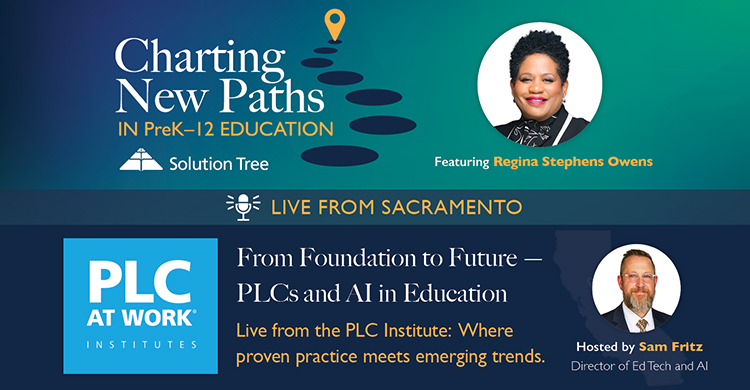Eliminating the deficit discourse by focusing on learning rather than labels is a key step toward a more just and equitable mathematics education. (NCSM & TODOS, 2017)
How does your mathematics team talk about student learning when analyzing student results? Is the data explained away using assumptions about students’ abilities or effort? Do you hear statements like the following?
- Those students can’t …
- They do not want to learn.
- They are not motivated.
- They don’t do anything.
- These students are low.
- They don’t even try.
Unfortunately, these statements are examples of statements I’ve heard teams make and are also examples of deficit discourse. Deficit discourse is derived from deficit thinking and is defined by the continuous labeling of students’ mathematical ability based on their readiness or willingness to continue learning. NCSM and TODOS’s position statement on social justice explores deficit thinking, and the first priority is to eliminate deficit views of mathematics learning.
Full confession: My teams and I have used deficit discourse to identify challenges in our classes over the years. When we made these comments, we did not realize the statements were a cop-out. By falling victim to deficit language, we spent too much time focusing on what our students don’t do or understand versus what they do have.
So, how do we overcome deficit thinking? How do we change one’s mindset or beliefs about student learning? Let’s start by changing the way we talk about students and creating a plan to take action on student learning.
Create a Culture Where All Means ALL
What can you do when you notice deficit language taking over team conversations? Begin by stopping the labeling of students. You and your colleagues are each working hard and trying new strategies to help all students learn. Use this as an opportunity to talk about addressing the challenges as a team and brainstorm strategies to support continued learning while digging deeper into WHY students are struggling. To move from deficit thinking to more productive solution-based discussions, here are some alternative statements that begin a team conversation focused on continued student learning.
| Instead of thinking or stating: | Discussion can be centered around … |
| Those students can’t … | This group of students (specify how many and state names) is struggling with engagement in the lesson. What might we do differently to support their continued learning? |
| They do not want to learn. | This group of students (specify how many and state names) are shutting down early in the lesson. Which strategies have you found successful to encourage productive perseverance? Which strategies are developing a growth mindset in students and helping them embrace mistakes as on opportunity to continue to learn? |
| They are not motivated, or they do not even try. | Student C and Student D have been scoring low on assessments and are choosing unproductive behaviors during class. What can we do differently to keep the students engaged? How can we make the mathematics in the upcoming lesson come to life, so students can see the power of the mathematics? |
| They don’t do anything. | Student A and Student B have not submitted their independent practice for the last week. What required intervention can we provide to ensure that the students are given additional time and support to identify if the students are struggling on the essential standards or if they are failing to complete the assignments for other reasons? |
| These students are low. | This group of students (specify how many and state names) are struggling with the two of the learning targets this week. What is the prerequisite knowledge needed to access the content in the lessons next week? How can we plan to tap into the prior knowledge needed so we can target specific skills to support learning during intervention or small-group time? |
How will you and your mathematics team pay attention to your discussions and identify when deficit language is being used? How will your team work to uncover why students aren’t learning and what their common misconceptions may be? Together, through intentional discourse, teams can challenge assumptions about student learning and continue to provide targeted and specific support to all learners.
References:
NCSM/TODOS. 2016. “Mathematics Education Through the Lens of Social Justice: Acknowledgment, Actions, and Accountability.” A joint position statement from the National Council of Supervisors of Mathematics and TODOS: Mathematics for ALL.[author_bio id=”295″]








Love the term deficit discourse! The alternative statements will come in handy this school year. A bit worried about students/teacher beliefs as a select group will be placed in a compact class (speed math) starting in 4th grade.
Great insight! I will definitely be rephrasing my discussions with colleagues and help them to change their views on ALL our students.